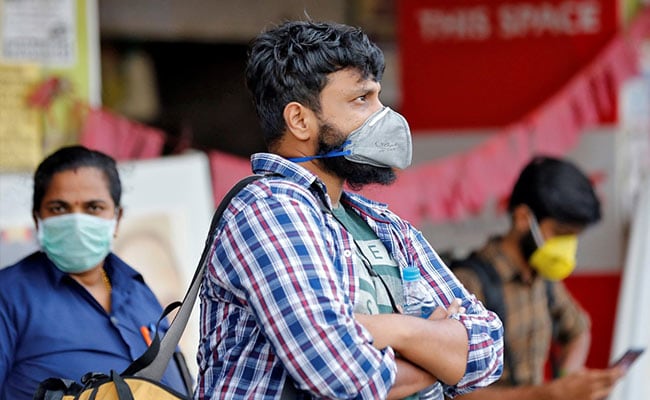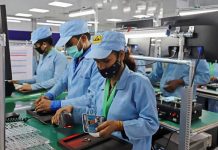This article is written by Shivali Srivastava from National Law University, Odisha and edited by Oishika Banerji from Amity Law School, Kolkata. This article lays emphasis on the abandonment of certain civil rights in the time of COVID-19. Additionally, focuses on the Centre and the State’s responsibilities towards the different sections of the population during the testing times.
Table of Contents
Introduction
It might seem out of place to think about human rights amid a global pandemic. Nonetheless, as Kenyan legal expert Joshua Maldizo Nyawa recently told us, the famous dictum of Lord Atkin that “in the middle of the gunfight, the rules are not silent” applies as much to a public health crisis as to periods of conflict or emergencies. Indeed, it is precisely because of the sweeping powers that governments arrogate themselves during times of crisis that it becomes even more important to scrutinize the legality of their actions; and this importance is emphasized by the fact that often, even after the crisis has passed, these sweeping powers tend to become entrenched in the legal landscape. The largest effect of the lockout has been on the poor, migrant labor, children, women, Dalits, Adivasis, transgenders, sex workers and other oppressed sections over the past few months. They make up over 70 per cent of our population. If the courts are unable to do anything for those who are unemployed and without adequate food or shelter in this national crisis.
Basic rights that are at stake
Covid-19 has provided the concept of health with a clear perspective in India. This is now at the forefront of discussion in even more ways than just one, at the heart of universal human rights law, and certainly a central section of Article 21. At this moment, an important part of the issues concerning the right to health circulates around pandemic testing and containment. Spiraling findings from all over the country have spoken of food insecurity and hunger as higher life-threats to the greatest segment of the population than the virus, particularly as a result of the lockdown. That is the section that desperately needs to receive the basic and free essential health schemes and particular treatment and scheme for Covid-19, and even then there exists inadequate access to both of them.
Right to Health
As per a policy brief on Realizing the Right to Healthcare in 2014, Jan Swasthya Abhiyan referred to equal reach to all the possible socio-economic determinants of health which is to ‘protect livelihoods, sufficient food and eatery, accommodation, and clean water and proper sanitation’ and liberation from social inequities as essential for complete utilization of the right to health. It’s these very determining factors that have been thrown into a crisis in the current context, surprisingly, even as coping solutions for the pandemic rely essentially on that access. In declaring the lockdown, the government’s assumption was that every person has adequate food, potable water, safe shelter, sanitation and stands in an equal position with all other citizens in order to be able to access them without any obstacle.
The Directive Principles of State Policy have Part IV enshrined in the Constitution of India which provides a framework for the right to health. Article 39(E) guides the State to safeguard the welfare of employees, Article 42 provides for the equal and humane working space and maternity policies for ladies, Article 47 imposes a responsibility on the State to increase the nutritional and living standards of individuals and upgrade public health. Given that the Constitution does not expressly recognize the right to health or health care, the Supreme Court of India, in Bandhua Mukti Morcha v Union of India & Ors, declared the right to health under Article 21 which assures the right to life. The apex court reaffirmed in State of Punjab & Ors v Mohinder Singh Chawla that what is fundamental and essential to the right to life and should be documented as having a constitutional duty is to provide health services. In State of Punjab & Ors v Ram Lubhaya Bagga, the judges continued to accept the duty of the state to sustain health services.
The Supreme Court’s prejudice on the cost of testing defeats the rights of Article 21 as well as Article 14 of Indian Constitution. Ironically, this issue relates back to issues relating to the privatization of basic health care and the lack of state-controlled testing facilities. Returning to the discussion on the right to health as a part of access to justice, if access to free screening in the sense of Covid-19 is one part of the rights of Article 21, equal access to testing is another aspect of that right, one that awaits addressing.
The upwelling of vulnerabilities
The rights of the impoverished and the vulnerable were disrupted massively in the manner in which the first lockdown was announced (with a notice of four hours) and was then urgently extended (without prior warning), and then the disregard with which the state treated them in the initial days of the lockdown. KP Kannan maps the worker population in a contemporary article about the effects of Covid-19 lockout for the working class of the country.
His figures indicate that 92 million of the 461 million employees are listed as members of the formal sector. Among those, 49 million are formal-sector unpaid jobs, contract workers, temporary employees, etc. That means approximately 43 million of India’s 461 million employees as of 2018 belong to the formal sector with certain job security and legislative rights, just under 10 percent. Throughout India, scholars point to informality as a pervasive condition of existence pertaining to the majority of the population largely unregulated and vulnerable in every way, precariousness a defining state of existence.
Domestic employees face a diverse collection of susceptibility related to unfair working conditions and exclusions within care jobs. Caste prejudice expresses itself in exacerbated types of untouchability practices with regard to care employees involved in health, sanitation, and related occupations, and yet the diktat of preserving ‘hygienic’ immediate conditions and ensuring hygiene in medical care facilities to the maximum makes care work the most important of all types of employment in this context. While urgent action is extremely important and appropriate, we need to go beyond thinking about solatium, subsistence wages, compensation and rationing to uproot hunger, to think about how we could address the issue of constitutional commons governance. This is no longer a matter of one particular right. It’s the ‘absolute citizenship’ question.
Migrants that were returning home found themselves barricaded from villages that are their homes. At this time, terror, rage, disinformation and the legitimization of lynching politics make for a volatile mix, triggered by intense governmental arbitrariness and maladministration. Article 15 of the Indian Constitution is disarticulated as people start shutting down doors using Corona to reinstall more deeply rooted biases with impunity.
Human rights requirements in a public health emergency
The constitutional commons are constituted by the collective determination to ensure justice, freedom, equality and brotherhood within a democratic polity. It is these principles of which India is a party that is also enshrined in international human rights law. In an article by Upendra Baxi, he emphasizes the value of the peremptory jus cogens, which categorically sets out state responsibilities and proceeds to observe that ‘only new ways of human compassion and solidarity can help to solve this deadly and terribly grim obstacle and (help build) a new future for global politics marked by empathy, brotherhood, justice, and rights.’
Staff in the health sector who are the first to be affected have the right to maximum security as part of Article 21 (Right to Life) and Article 14 (Right to Equality) in recognition of their increased vulnerability. Children’s rights under Article 21 (which includes essential safeguards against harassment and violence) and 21A (right to education) are paramount when schools and educational institutions are shut down.
International human rights principles warn us that in situations of public health crises where freedom limitations such as quarantine, self-isolation, lockdowns, and compulsory distancing requirements are deemed appropriate, States must be diligent in ensuring that such interventions are not extensive and absolute in nature. Instead, the State must ensure to impart security and assurance to its citizens and design their policies that are tailored to the particularities of the conditions on the ground and thus limited in time and deployment.
Concerns related to the right to privacy
Since the issue is with Covid-19 spread, case mapping, contact tracing, and hotspots detection have resulted in the proliferation of uncontrolled surveillance operations.
If under the Constitution, the right to privacy is a fundamental right, freedom from surveillance is central protection of privacy and State action on this front must adhere to international and constitutional standards. In the case of an individual released from prison in the Kharak Singh case, the matter of surveillance was put before the court. Consent is compulsory for surveillance (strictly restricted in deference to the fundamental right to privacy as provided for in the constitution) confinement, quarantine, and care. In addition, the right to privacy was one of the greatest losses in the Covid-19 context and must be addressed.
Rather of reducing it to a bureaucratic exercise sponsored by coercive policing, we should demand that each state government be directed by a team of experts, consisting of public health practitioners across disciplines, epidemiologists, and politicians, and that the state government implements evidence-based interventions tailored to unique realities. Citizen rights, rights, and integrity must be at the center and the system must be governed by openness and State responsibility. We’re in for a long ride, and correction, of course, is still in the domain of what’s possible.
The regulatory framework pertaining to COVID-19
The lockdown was undertaken by state and district authorities in the direction of the Union Ministry of Home Affairs under the 2005 Disaster Management Act, which was intended to “provide effective disaster management and relevant or incidental disaster management.”
The National Disaster Management Act, 2005 (NDMA) occupies quite a different administrative and legislative area. A critical analysis of the act is beyond the scope of research for this article. Going by the fact that it is a statute invoked, there have been a lot of pitfalls that need to be emphasized. The epidemic/pandemic is not a catastrophe as a starting point, and cannot be viewed as one. By this token, the public bodies responsible for managing and preventing disasters, namely the Ministry of Home Affairs, are fundamentally unsuitable for coordinating pandemic state intervention.
Taking a lead from the guidelines, the state governments and authorities exercised powers to give further instructions under the Epidemics Diseases Act of 1897. The Health and Family Welfare Department of Tamil Nadu on March 23 released a government order to implement social distancing and isolation measures. The earlier order was subsequently extended for a duration of 21 days on March 25, in line with the National Executive Committee (NEA)’s directions. District officials such as the police chief, Grand Chennai, have given orders to enforce Section 144 of the Code of Criminal Procedure in public.
Conclusion
The starting point of a concerted resistance against COVID-19 must be an utter repudiation of an ancient Latin maxim, inter-arma enim silent leges (the law is silent in times of war). Combating this formidable pandemic requires a re-dedication to the interconnected commitments and structures of international law. Human rights aren’t just a privilege to be secured until the anger simmers down. Nevertheless, maintaining human rights will mean effective implementation and compliance, as they are more likely to comply when they trust the government and feel protected. While it is a daunting challenge to provide protection for one-sixth of the world’s population, the lockdown would have been better enforced if it had been achieved in a staggered manner to allow individuals to plan, prepare and make informed decisions.
References
- https://www.epw.in/engage/article/covid-19-lockdown-protecting-poor-means-keeping-indian-economy-afloat
- https://freedomhouse.org/article/why-we-should-be-worried-about-indias-response-coronavirus
- https://www.bloombergquint.com/coronavirus-outbreak/covid-19-and-the-indian-supreme-court
- https://www.orfonline.org/expert-speak/declaring-the-right-to-health-a-fundamental-right/
- https://www.theindiaforum.in/article/justice-and-rights-viral-contexts-india
LawSikho has created a telegram group for exchanging legal knowledge, referrals and various opportunities. You can click on this link and join:
 Serato DJ Crack 2025Serato DJ PRO Crack
Serato DJ Crack 2025Serato DJ PRO Crack











 Allow notifications
Allow notifications


